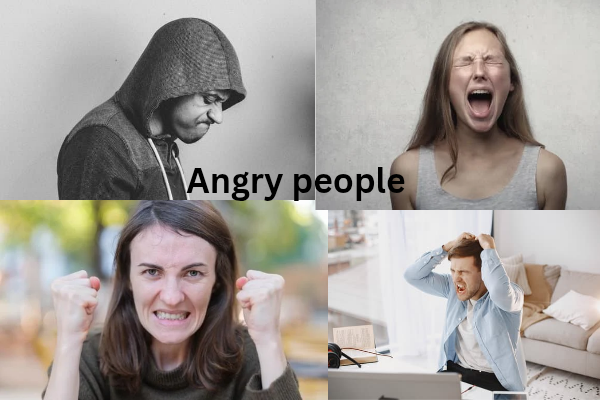
Understanding Their Behaviors and Challenges
In this blog post, we’ll explore the concept of angry people, their behaviors, and how they fit into the broader spectrum of humanity. Our focus keyword, “all kind of people,” will guide us as we dive into understanding this often-misunderstood segment of society.
Angry People
Angry People
Angry people are a diverse group within the broader category of all kind of people. Anger is a natural human emotion, but for some, it becomes a dominant part of their personality. These individuals often struggle with frustration, disappointment, and even a sense of injustice. Anger can arise due to stress, past trauma, and unmet expectations, and while it can be an occasional response for most, it defines the behavior of certain individuals.
What sets angry people apart is not the emotion itself but also how they process and express it. Some may shout or display aggression, while others internalize their anger, which can lead to passive-aggressive behavior. Understanding this helps us empathize with them as part of all kind of people.
Types of angry people
Between all kind of people, angry individuals can be categorized into different types based on how they express or deal with their emotions:
1: The explosive type
These individuals express their anger outwardly, often through shouting, arguing, or even physical aggression. They may have a short temper but usually calm down quickly after releasing their emotions.
2: The passive-aggressive type
Instead of direct confrontation, passive-aggressive people express their anger subtly. This could be through sarcasm, procrastination, and subtle sabotage.
3: The chronic angry type
These people seem to be angry at the world constantly. Their anger often stems from deep-seated frustration and unresolved issues.
4: The Self-Angry Type
Instead of blaming others, this type directs their anger inward, often resulting in self-criticism and feeling of inadequacy.
Each type exists among all kind of people, or recognizing these angry individuals with greater understanding.

Lifestyle of angry people
The life style of angry people can be deeply affected by their emotional tendencies. Unlike all kind of people who may balance various emotions, angry individuals often struggle with maintaining harmonious relationships and finding inner peace.
For example
Relationship
Anger can strain personal relationship,as loved ones may feel overwhelmed and hurt by frequent outbursts.
Workplace
In professional settings, angry people may have conflicts with colleagues and struggle with team work.
Health
Chronic anger can lead to physical issues like high blood pressure, heart problems, and mental health struggles such as anxiety and depression.
However, just like all kind of people, angry individuals can make positive changes. With self-awareness or effort, they can adopt healthier coping mechanisms and improve their life style.
About mood swings of angry people
One of the fascinating traits of angry people is their ability to switch modes. Among all kind of people, angry individuals may move quickly between different emotional states, depending on their triggers and environment.
For example
Trigger -based switch
A calm person may suddenly become angry when reminded of a past hurt or faced with a frustrating situation.
Situational awareness
Some angry people can suppress their anger in professional settings but release it in their personal lives.
This mode-switching highlights how complex and multifaceted angry people are, just like all kind of people. It’s important to understand that these switches aren’t always under their control, or they may need support to manage these transitions effectively.
Angry people are often misunderstood souls carrying emotions too heavy to express calmly. Their outbursts may seem sudden and harsh but deep inside there is usually a build up of frustration hurt and unspoken feelings. Some angry people are short tempered reacting quickly to even the smallest inconvenience while others silently boil for a long time until one moment becomes their breaking point. Their anger might stem from personal disappointments injustice stress unresolved trauma. Often they do not know how to express themselves peacefully sarcasm so shouting and silence becomes their language. Not all angry people are bad some are kind hearted individuals simply struggling with emotional regulation. They may later regret their behavior isolate and apologize themselves in guilt. But beneath the rage there is often a need for understanding empathy and sometimes just someone to listen. Society tends to judge angry people harshly forgetting that everyone has a different threshold for pain and pressure. Learning to recognize the signs of hidden hurt behind the anger can turn frustration into compassion and conflict into connection. Helping an angry person does not always mean fixing their problems it often just means not fueling the fire.
- Read this
- Happy people

Pingback: Happy people -